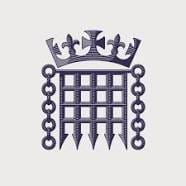The following act recently passed in UK legalizes the following:
- A Justice of the Peace [henceforth JP] or other person deemed fit by the Local Authority has the power to remove a person, child or possession if they are believed to have been contaminated, had contact with a contaminated person or are at risk of contamination. There is no conclusive test available for Covid-19 because the virus itself has never been isolated. The person, once under the order of the Local Authority, no longer has their Common Law rights under Habeus Corpus. They can be detained for an indefinite period in a State facility and forced to undergo training sessions.
- A “thing”, as it is written in the Law, can be seized, destroyed, decontaminated or retained by the State for an indefinite period. Please note the vague terminology. This could relate to a house, car, cash, pets, heirlooms, land – anything which is deemed to have been in contact with a source of contamination or suspected contamination.
- A child can be taken into the custody of the Local Authority and forcibly removed, treated or detained.
- It should also be noted that medical practitioners, Social Care Workers (who are not qualified Social Workers but any person who has been deemed fit by the local authority) have legal indemnity for their actions and cannot be sued or prosecuted for misdiagnosis, maltreatment or any other action as listed in the Act above.
“45 G
- (1) a-d: A JP has the power to determine whether or not a person is, may be, has been infected, or if they pose a threat because they may have associated with an infected person. The Act does not require a medical diagnosis by a qualified medical practitioner.
- (2) a-k: Having determined the above, the JP can compel the person to submit to medical examination, be detained in a hospital or other suitable establishment (not specified), wear protective clothing, attend “training or advice” sessions, cease work, employment or trading and answer questions regarding their whereabouts and associates. Note that the person is to be detained and not arrested, therefore they do not have their Common Law rights whilst under arrest.
- (3) a-d: The JP may make this order if the person is contaminated, has been contaminated, may have contaminated others or may pose a threat of contamination to others.
- (4) The person can be compelled to reveal information about themselves or a related party.
- (6) c: A person with parental responsibility can be compelled to submit their child to any of the above and may not refuse treatment.
45 H
- (1) a-d: As above a JP has the power to determine whether or not a person is, may be, has been infected, or if they pose a threat because they may have associated with an infected person. The Act does not require a medical diagnosis by a qualified medical practitioner.
- (2) a-e: A JP can seize the property (written into the Law as “thing”) of any person who meets the above criteria and order that it be confiscated, removed, decontaminated or destroyed.
- (4) a-b: They may also require that a person who has had contact with the thing answer questions regarding the identity of anyone who may have had contact with it.”



